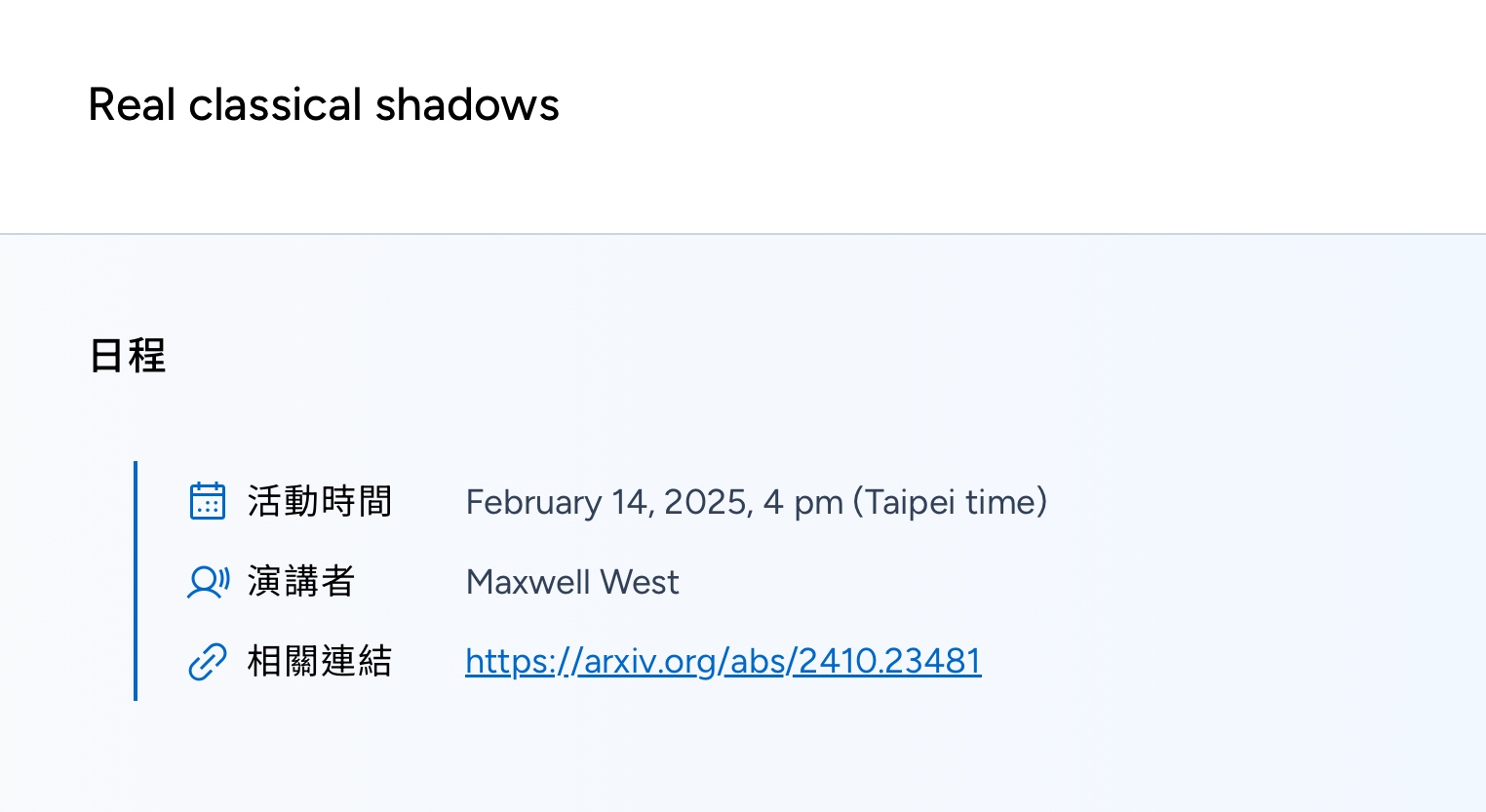
Real classical shadows
Schedule
Date
February 14, 2025, 4 pm (Taipei time)
Speaker
Maxwell West
Reference
Abstract
Efficiently learning expectation values of a quantum state using classical shadow tomography has become a fundamental task in quantum information theory. In a classical shadows protocol, one measures a state in a chosen basis W after it has evolved under a unitary transformation randomly sampled from a chosen distribution U. In this work we study the case where U corresponds to either local or global orthogonal Clifford gates, and W consists of real-valued vectors. Our results show that for various situations of interest, this ``real'' classical shadow protocol improves the sample complexity over the standard scheme based on general Clifford unitaries. For example, when one is interested in estimating the expectation values of arbitrary real-valued observables, global orthogonal Cliffords decrease the required number of samples by a factor of two. More dramatically, for k-local observables composed only of real-valued Pauli operators, sampling local orthogonal Cliffords leads to a reduction by an exponential-in-k factor in the sample complexity over local unitary Cliffords. Finally, we show that by measuring in a basis containing complex-valued vectors, orthogonal shadows can, in the limit of large system size, exactly reproduce the original unitary shadows protocol.
Personal information
Max West is a PhD student at Melbourne University. His research interests are in quantum computation and quantum information, with a focus on how tools from representation theory and random matrix theory can help to explain both quantum systems and the algorithms that characterise them.
Post Date
February 14, 2025
Centers
Topic


